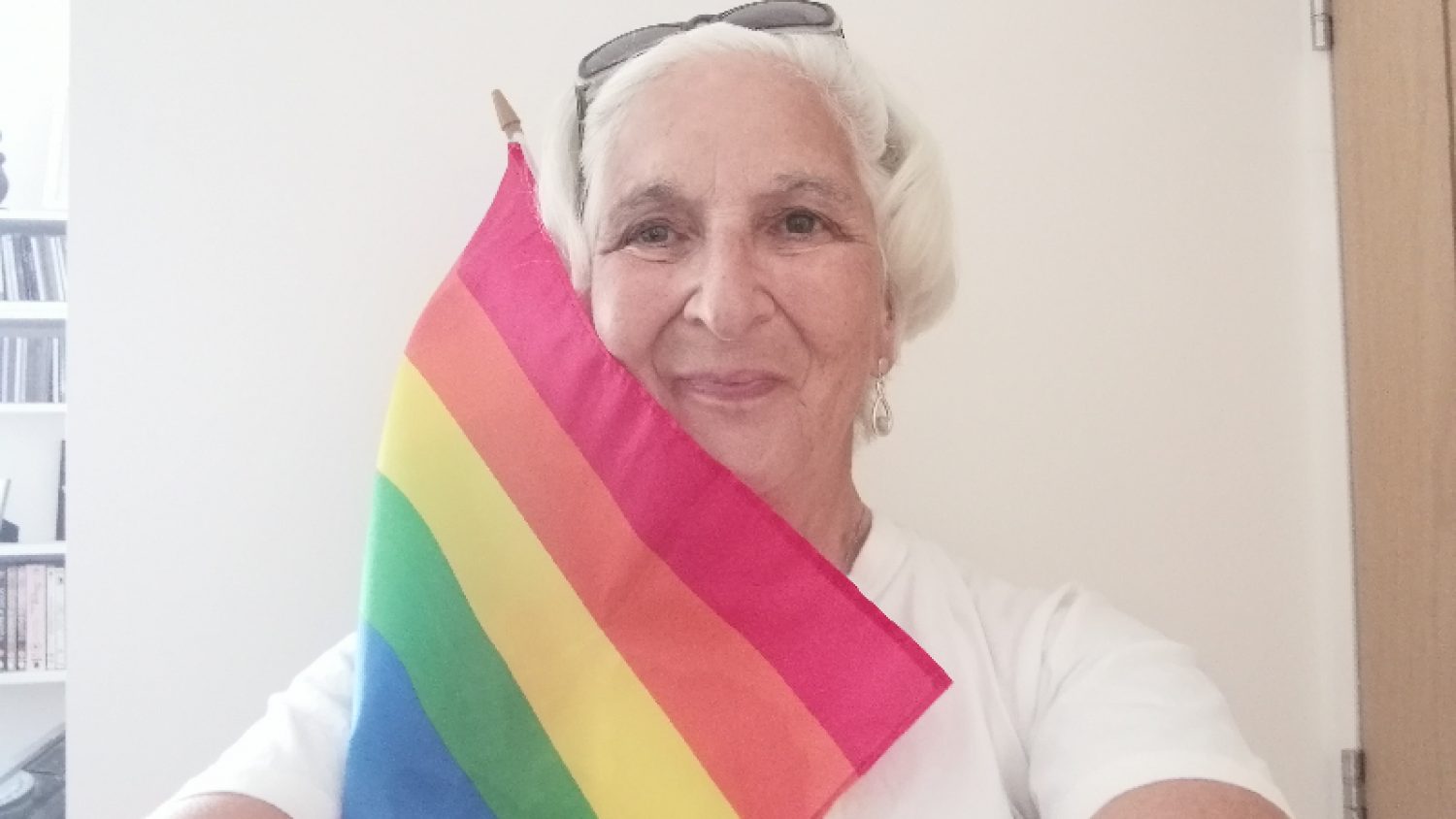Four minute read
Jackie Engelberg is the Development Worker for Grief Encounters and Grief Meets, which supports LGBTQ+ people who have experienced bereavement.
Here, she talks to us about the importance of peer support, why LGBTQ+ specialist services are still needed and how this project is the perfect fit for her.
So, to start off, can you tell us about Grief Encounters?
Grief Encounters was set up by Switchboard, who offer support services to the LGBTQ+ community. People called us who were bereaved and looking for support, but no dedicated space for our community existed at that point.
Grief Encounters has been running for about three years and I’ve been involved since the start. We set it up as a peer support group — not therapy or counselling. People could join a facilitated, closed group for six weeks to share personal experiences — it was a safe and confidential setting where they could be fully themselves.
But when the six weeks were over, we realised that people still needed support. That’s how Grief Meets evolved.
Grief Meets are informal, monthly meetings around a theme or activity, like creative writing, art or self-care. During the lockdown, we found that Grief Encounters didn’t work so well over Zoom. It felt different when people were isolated at home, instead of in a room with others. But Grief Meets really blossomed.
We collaborated with New Writing South to run groups that used creative writing to explore grief. In these groups, people used music, memories and memorabilia as triggers for writing about their grief.
It sounds like a really creative approach to accompanying people who are grieving. But why did you feel a specialist LGBTQ+ service was needed in the first place?
In other services, people had encountered inappropriate assumptions — for example, assuming a person’s partner or spouse was simply their friend or not acknowledging their partner as next of kin.
There are also situations where LGBTQ+ people are excluded by their dying partner’s family from healthcare or funeral decisions.
It’s not just about partners though. If you come out to your parents and they don’t accept you, it puts that relationship under stress. Then if a parent dies before they have accepted their child’s sexual orientation or gender identity, it can raise a lot of complex emotions for the grieving child.
So much has changed for LGBTQ+ people, especially around parenting and custody. So much has improved. But it does depend where you live — and even in London, Manchester and Brighton, people are still attacked for being LGBTQ+. Attitudes to trans people now are similar to attitudes to lesbian and gay people decades ago.
Just because legislation has changed, it doesn’t mean that attitudes have changed at the same pace.
Why do you think that Grief Meets have been so helpful for the people taking part?
Grief Meets work well for people who might find sitting round in a circle, talking about their feelings, a bit too heavy or threatening. By singing, writing, baking, sharing photos or favourite music, they can access their feelings in a less direct way — and sometimes learn a new skill.
We’re launching our new programme of Grief Meets this month — some on Zoom and others in-person around Brighton and Hove. We vary the activities to appeal to different people.
For example, as part of the new programme, we’ll be doing some gardening. There’s something powerful about nurturing and growing, it’s a real symbol and celebration of new life.
As funeral directors, we think it’s important for everyone to have the funeral they want and need. What experiences of funerals have you heard about from participants in Grief Encounters and Grief Meets?
Unfortunately, some people might be excluded from making decisions about funerals. We’ve heard some really negative stories where LGBTQ+ people find their voices are not listened to within the family. It’s a real challenge.
However, we’re also heard about families who have accepted and embraced partners or friends of the person who has died.
And how did you personally get involved with Grief Encounters?
I work on the project as a Switchboard staff member for seven hours a week. Five years ago I trained with Switchboard as a listening volunteer for the helpline and then project managed their Rainbow cafe for people affected by dementia. But when I heard about this project, I knew it was the perfect fit for me.
In the late 80s and early 90s, I delivered training for carers who supported people living with HIV/AIDS. I received intensive training around death and dying with the Elisabeth Kübler-Ross Foundation. Grief and bereavement is an area of work which goes way back for me.
I have experience of grief on a personal level too — my partner died 26 years ago. As soon as I heard about Grief Encounters, I thought, yes, I’d like to run that project. My lived experience and professional experience made me passionate about this work.
Find out about 'Being Ready' — a project to improve end-of-life and death care for trans and gender diverse people and check out our helpful guide to trans and LGBTQ+ funeral resources.
Contact Jackie to discover more about how you can get involved with Grief Encounters and Grief Meets.
To stay in touch with all the latest news and updates from Poppy's by email, sign up here or contact us if you need help planning a funeral.
